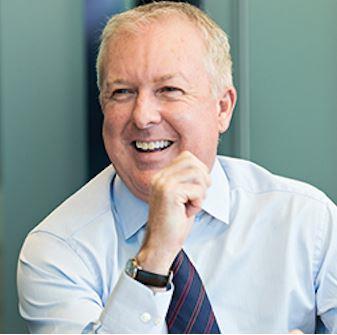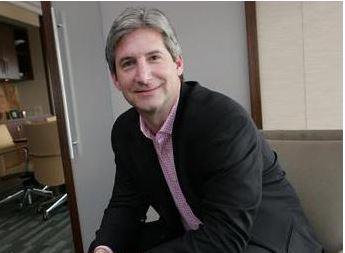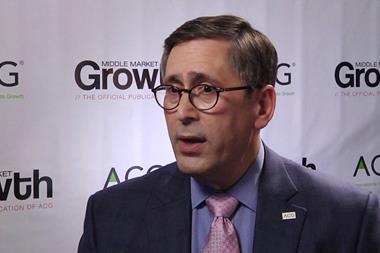Insurer’s chief operating officer Paul Whittaker talks exclusively to StrategicRISK about the story behind the sale of the insurer’s Singapore and Hong Kong branches, its remaining regional interests and its future in Asia

Since taking on the top job at RSA in February, former Royal Bank of Scotland chief executive Stephen Hester has offloaded the company’s Baltics and Poland operation, its majority-owned Canadian insurance brokerage business and its China division.
And now RSA has sold its Hong Kong and Singapore operations to Allied World, which Hester said represented “continued progress against our aim of tightening the strategic focus of the group”. He has also promised more disposals over the next 12 to 18 months.
So it’s time to find out what remaining Asian interests the centuries-old company still retains, and which of them it intends to keep.
“What is left? We have a couple of minority shareholdings, really,” says Paul Whittaker (pictured), who was appointed group chief operating officer in May and tasked with the completion of ‘strategic disposals’.
“We’ve got our Indian JV [joint venture] with our partners Royal Sundaram [Alliance Insurance Company] in Chennai, where we’ve got a 26% shareholding, which is the most you can have in an Indian insurer.
“We still have a minority shareholding [20%] in a business in Thailand called SMK [Syn Mun Kong]; they are probably the number two motor insurer in Thailand.
“They’re really the only businesses we have left [in Asia], other than servicing the requirements of our global clients such as big corporates from Latin America or London with a big Asian presence.”
With reports coming out of India that Sundaram Finance is looking to buy RSA’s stake in Royal Sundaram, and that the insurer is in the market for a new overseas partner, it looks likely that RSA could soon offload its remaining Asian interests and leave the region altogether.
It’s quite a turnaround for a company that up until late 2013 was declaring that it had a strong focus on rebuilding its presence in Asia.
So what has gone wrong for RSA in Asia? Whittaker puts it this way: “When we started the programme of disposing of some of our assets, the group had come under some significant pressure following some difficulties in Ireland and therefore there was a need for some strategic focus and some capital husbandry, if I can use that phrase.”
Indeed, former RSA chief executive Simon Lee quit in December 2013 following a crisis in the company’s Irish operation that resulted in a massive capital shortfall.
“I think through a rights issue and disposals that have already taken place, the capital issue has been well put behind us and our capital position is now very strong, so there’s no need to sell anything any more,” Whittaker says.
“Having said that, you have to wonder about your presence in Asia when you just have two minority businesses and whether that makes any sense.”
Not a ‘massive presence’
Head of Asia for RSA Chris Colahan told SR last year that when the company exited many markets in Asia back in the early 2000s, it was “a bit of a blip in the long storied history that we’ve had Asia”.
Whittaker makes it clear that this latest move is more than just a blip, adding that “we weren’t a massive presence in the region, truthfully”.
“As we have reviewed the strategy we’ve said, look at the regions where you would back yourself most,” he explains.
“We liked Asia a lot, but we have bigger scale in Latin America. We’re the number one in Chile, we’re a substantial player in Argentina and Uruguay, and we’ve got nice businesses in Brazil, Colombia and Mexico. It was where we were bulkier and had better market presence.
“It’s not that we preferred Latin America economically over Asia particularly, but it was just that we already a bigger footprint.”
RSA is also strong in Scandinavia, Whittaker says, particularly in Sweden, and Denmark.
“We’re a major player in Canada and the number two player in the UK,” he adds, “and with our businesses in Latin America, that would be how we define core [business].”
Whittaker, who joined RSA as the group’s human resources director in 2003 before being appointed as head of emerging markets in 2006, says that all RSA’s Asian interests fell into the company’s ‘non-core category’, and “therefore the implication was they were considered for sale”.
When asked if there was any chance that RSA would return to Asia, Whittaker makes it clear that this wouldn’t happen any time soon.
“Inevitably, when you pull out of markets like Hong Kong and Singapore, you make commitments to the new buyers that you’re not going to compete for a period of time,” he says.
“We’ll still support our global Asian clients, but this is clearly us somewhat out of the picture in the region or significantly de-scoped for the foreseeable future.
“You can never say never, but this is obviously a major move.”
Big attraction
Whittaker, whose has also worked for AXA and GE Capital, says the fact that Allied World already had licences in Singapore and Hong Kong was a big attraction for RSA when considering this sale.
“It’s also an attraction for Allied World because they don’t have scale plays and they’ve actually acquired these businesses because they want to keep the people, the infrastructure, the customers and the distribution whole,” he says.
“I think it’s great because it means that if you’re a customer, you’re going to be dealing largely with the same people and of course a lot of our people will retain that stability and their job security.”
Chris Colahan is not one of them, Whittaker adds, but he is “supporting us ongoing with the closure of those sales”.
“Of course, for China, Hong Kong and Singapore we’re still going to own these assets for many months yet, so we’ve got to run them and we’ve got to support them, and we’ve got our JVs in India and Thailand to think about,” he says.
“But it’s inevitable that Chris will take another role somewhere, either in RSA or outside in the medium term.
“He is the regulatory lead for our business in Singapore, so I think we’ll need to announce shortly a new leader for that once we’ve agreed that with the regulator.”
Whittaker says that this all leaves RSA in “15 or so countries operationally”, but also with a “genuine global network”.
“It’s a very strong system that we have building partnerships with non-RSA companies, so we can operate in 150 countries.” he says.
“So if you’re a big global corporate out of London, Brazil, Canada or one of our other territories, we can service your global needs across many countries.”



















No comments yet